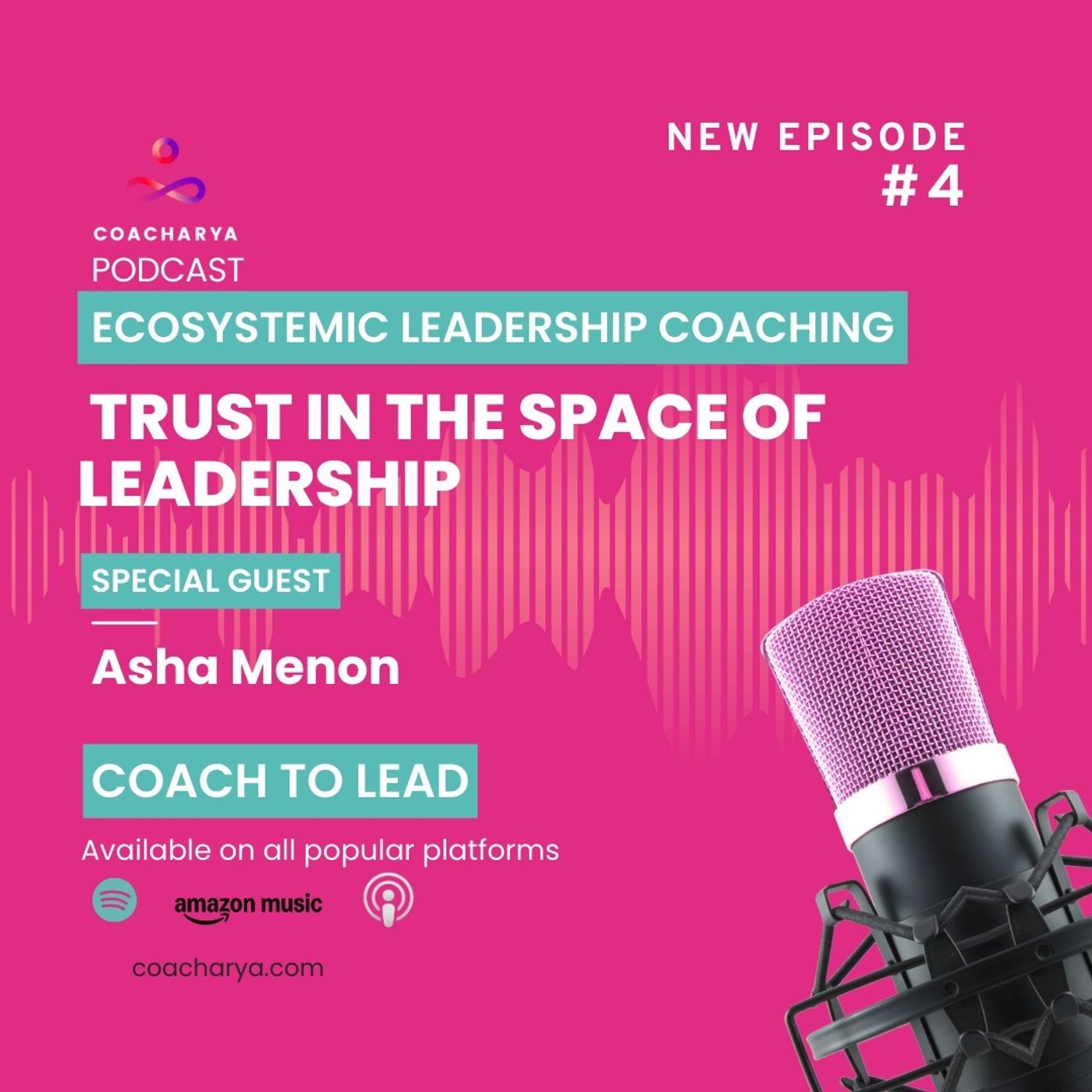Podcast Episode Details
Back to Podcast Episodes
Eco-systemic Leadership Coaching Ep:4 - Trust in the Space of Leadership
Episode 223
The discussion opened with insights from Amy Edmondson and Brené Brown, highlighting how trust is built incrementally through "micro moments" and the critical role of vulnerability. Asha shared a powerful personal anecdote of how her vulnerability during a challenging period in Bangladesh fostered deep team connection and enabled significant professional achievements. The conversation then expanded to practical strategies, including The Elevate School's CBI (Credibility, Benevolence, Integrity) framework for assessing and building trust. They also tackled the unique challenges of cultivating trust in today's unpredictable, hybrid work environments, emphasizing the paramount importance of a leader's consistent "presence." Finally, Smita and Asha offered actionable takeaways for both new and seasoned leaders to continuously strengthen trust, underscoring that a truly trustworthy leader models the desired behaviors and fosters a culture of open communication, accountability, and genuine human connection.
Key Takeaways and Learnings:
Trust as the Foundation of Teamwork: Trust is the "invisible thread" and "oxygen" that creates psychologically safe spaces, enabling individuals to be authentic, take risks, and foster high-performing collaboration.
Micro Moments Build Macro Trust: Trust is not built through grand gestures but through consistent, small, daily interactions and acknowledgments, as highlighted by Brené Brown's "sliding door moments."
The Power of Vulnerability (When Appropriate): Leaders' vulnerability, when coupled with steadiness and appropriate timing, fosters deeper connections and relatability. Asha's personal story exemplified how accepting help during a vulnerable time transformed her leadership journey and built immense trust.
The CBI Framework for Trust: A robust framework for assessing and building trust involves:
Credibility & Competence: Demonstrating knowledge, skills, and the ability to effectively fulfill responsibilities, proving you "walk the talk."
Benevolence: Showing genuine care and concern for team well-being, consistency in kind actions, taking responsibility, and ensuring people feel seen and supported.
Integrity: Maintaining consistency between words and actions, adhering to ethical principles, honesty, and giving credit where it is due.
Consistency is Non-Negotiable: For all aspects of trust-building, consistency in a leader's behavior is vital for dependability and to avoid confusion or mistrust within the team.
Strategic Presence in Hybrid Work: In remote or hybrid settings, maintaining a leader's "presence" (even virtually) is crucial for building trust, fostering connection, and ensuring team members feel engaged and not isolated. This requires intentional check-ins and empathetic communication.
Tailored Trust-Building Approaches:
For New Leaders: Focus on humility, active listening, observing, showing genuine respect for existing structures, and thoughtfully offering input that supports rather than overshadows.
For Seasoned Leaders: Leverage immense wisdom and experience by continuing personal growth, learning, and adapting to new viewpoints and generations, becoming profoundly inspiring through evolving relevance.
Indicators of High-Trust Teams: Teams with strong trust exhibit candid and respectful conversations, open sharing of diverse opinions, shared ownership of mistakes, reduced politics, increased collaboration, and a clear focus on collective goals.
Practical Steps for Strengthening Trust: Regular practices include checking in personally (beyond just tasks), recognizing efforts and planning (not just outcomes), modeling accountability by ow
Published on 2 months, 2 weeks ago